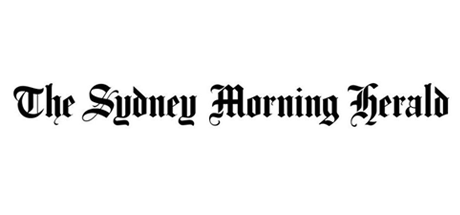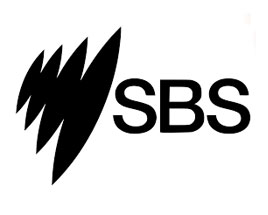
Our Reach
Founded in 1994, SMART Recovery is the world’s largest community of mutual support group meetings that uses science and self-empowerment to help people overcome addiction problems with drugs, alcohol and harmful behaviour such as gambling, over-eating and excessive shopping and internet use.
Tens of thousands of people gather weekly at 3000 SMART meetings in 23 countries, including Australia, Canada, UK and USA. People anywhere in the world can also attend meetings online, as well as free access online support forums and recovery apps. The SMART Recovery Handbook has been published in 13 languages: Arabic, Danish, English, Farsi, French, German, Mandarin Chinese, Polish, Portuguese, Russian, Spanish, Swedish and Vietnamese. There is also a culturally appropriate version for Aboriginal and Torres Strait Islander peoples of Australia.
Additionally, SMART Recovery has a dedicated Family and Friends program for people affected by the addictive behaviours of significant others, while the Inside Out program is specially designed to provide assistance for inmates within correctional facilities across USA, UK and Australia.
Countries where SMART Recovery exists:
Made with Visme Infographic Maker
Our Global Meeting Growth
The number of SMART Recovery meetings is on pace to quintuple this decade as the global addiction crisis increases the need for treatment and recovery support.
How SMART is Helping Address the Global Addiction Epidemic
Each year in the USA alone, the global addiction epidemic:
Takes the lives of more than 160,000 people, including more than 72,000 fatal drug overdoses in 2017 and the 88,000 annual deaths attributed to excessive alcohol use, according to the Centers for Disease Control and Prevention. The U.S. accounts for one in four drug-related deaths worldwide, most caused by opioid overdoses, according to the United Nations Office of Drugs and Crime (World Drug Report, 2017).
Costs the economy as much as $1 trillion or more based on various estimates that account for crime (police, court and incarceration expenditures), lost work productivity and healthcare. The National Institute on Drug Abuse (NIDA) estimates addiction to tobacco products, drugs and alcohol costs the economy more than $740 billion. The White House Council of Economic Advisors estimates the opioid crisis alone is costing more than $500 billion (The Underestimated Cost of the Opioid Crisis, 2017).
These figures cannot measure the incalculable impact on the families of loved ones suffering from addiction and the quality of life in communities everywhere, especially those hit hardest by the opioid epidemic.
SMART Recovery has helped address all these needs over the past quarter century. It holds free weekly support group meetings for people suffering from harmful addictions, including those undergoing medication-assisted therapy; their family members and friends; and inmates in correctional facilities through its InsideOut program, which was developed with $1 million in grants from NIDA.
SMART also has meetings for teenagers, students in schools, military veterans and people needing support in recovery community organisations, treatment centres and hospitals, along with meetings for family members and friends with loved ones who have addictions.
“addiction is a very human condition that can be corrected”
Joe Gerstein | co-founder

History of SMART Recovery
SMART Recovery was established in 1994 in the USA to meet the increasing demand of health professionals and their patients for a secular and science-based alternative to the widespread 12-Step addiction recovery program.
Such was its popularity that SMART Recovery grew from 42 group meetings at the beginning to more than 2000 in North America alone today and now proliferating worldwide in 23 countries and counting.
The fast pace of growth, especially in this decade, is the main reason that SMART Recovery International was established in 2018.
International Milestones
1998 - First meetings by predecessor in United Kingdom are launched in Scotland’s Inverness Prison. This program was so well received that eventually inmates were being trained to facilitate meetings, and then correctional officers needed training to learn how SMART was transforming the culture of the prison
1999 - SMART meetings launched in Canadian provinces of Alberta, British Columbia and Ontario. With more than weekly 100 group meetings – or well over 5000 per year – British Columbia currently hosts the most meetings in this country.
2003 - SMART materials are translated into Portuguese, Russian and Spanish.
2004 - SMART introduced at St. Vincent’s Hospital in Sydney, Australia, to treat patients with alcohol use disorder. This hospital helped launch 38 meetings in the country in 2004-2005.
2005 - Licensing agreement is signed to establish the first national office outside the USA: SMART Recovery UK. This organisation registered as a charity the following year in Scotland.
- Licensing agreement is made with Vietnamese government to use SMART in correctional facilities, where groups are established as the SMART Participant Handbook and Facilitator’s Manual are translated into Vietnamese.
2007 - SMART Recovery Australia is formed, broadening the focus of meetings to include alcohol, drugs and harmful addictive behaviours.
- UK SMART Recovery is formed to oversee meetings and growth in England, Northern Ireland, Scotland and Wales.
- Together with SMART Recovery in the USA, Australia and the UK would lead the initiative to create SMART Recovery International.
2009 - Participant Handbook is translated into Farsi and Mandarin Chinese.
2010 - SMART Recovery groups are meeting in 10 countries – Australia, Canada, Iran, New Zealand, South Africa, Sweden, UK, USA, Uzbekistan and Vietnam – with plans underway to launch groups in Russia.
2013 - Total number of SMART groups meeting weekly worldwide crosses with 1000 milestone increasing the number of meetings per year to 52,000.
2016 - Total number of groups meeting weekly crosses the 2000 milestone or well over 100,000 per year.
2017 - Number of groups meeting outside the USA increases by more than 200 to 1115 by the end of the year bringing the total worldwide to well over 2500 or more than 130,000 group meetings per year.
2018 - SMART Recovery International is formed as 3000 groups are meeting in 23 countries, pushing the total number of meetings per year across the 150,000 mark.
Ending the Stigma of Addiction
SMART discourages the use of labels such as “addict” and “alcoholic,” because such labels can undermine motivation for many people. SMART views addiction as a behavioural problem that can be corrected, not a condition that defines a person’s identity.
Source: Better Language (GCDP 2017) / Global Commission on Drug Policy 2017, The World Drug Perception Problem: Countering Prejudice about People Who Use Drugs 2017 Report, Geneva.
Adapting with Research
SMART is supported by ongoing relationships worldwide with mental health professionals and psychological scientists, who help SMART stay current with relevant treatment and scientific innovations. SMART’s International Advisory Council includes some of the world’s leading addictive behaviour scientists. The SMART Recovery Australia Research Advisory Committee features scientists performing cutting-edge research in that country and globally.
Government and Medical Endorsements
SMART is a widely recognised pathway for recovery support and behavioural change. It is recommended by leading government and medical institutions worldwide, including:
Australia – the Government National Health and Medical Research Council and Government Department of Health and Ageing.
United Kingdom – National Institute for Health and Care Excellence and Public Health England.
United States – National Institute on Drug Abuse, National Institute on Alcohol Abuse and Alcoholism, Substance Abuse and Mental Health Services Administration and Federal Bureau of Prisons, White House Office of National Drug Control Policy.
Former Director of the White House Office of National Drug Control Policy, Michael Bottecelli (right), presents an endorsement certificate to SMART Recovery USA board member, Tom Horvath at the SMART Recovery USA 20th Anniversary Conference in Washington. D.C., September 2015.






